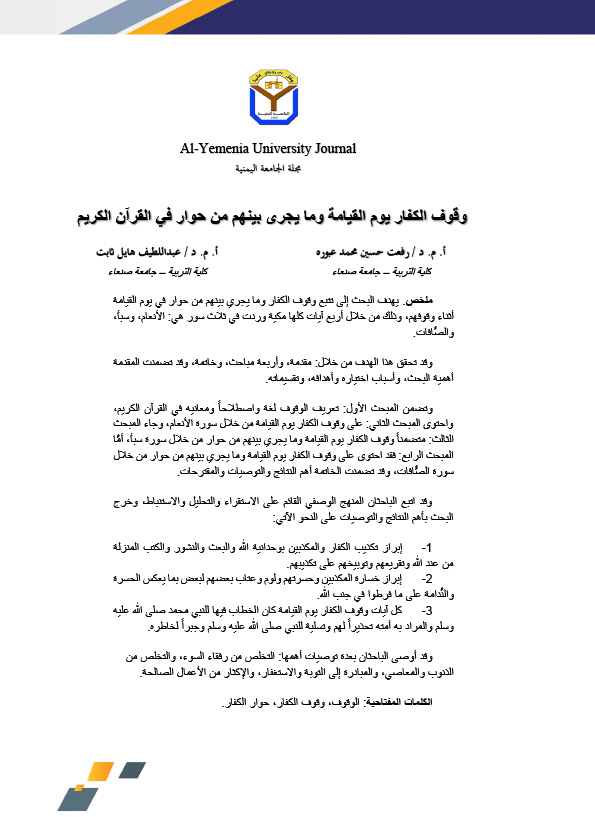The infidels standing on the Day of Resurrection and the dialogue that takes place between them in the Holy Quran
Keywords:
Standing, Standing of the infidels, Dialogue of the infidels.Abstract
The research aims to track the standing of the infidels and the dialogue that takes place between them on the Day of Resurrection during their standing, through four verses, all Meccan, mentioned in three Surahs: Al-An'am, Saba', and As-Saffat.
This goal was achieved through: an introduction, four chapters, and a conclusion. The introduction included the importance of the research, the reasons for choosing it, its objectives, and its divisions.
The first chapter included: the definition of standing linguistically and technically and its meanings in the Holy Quran. The second chapter included: the standing of the infidels on the Day of Resurrection through Surah Al-An'am. The third chapter included: the standing of the infidels on the Day of Resurrection and the dialogue that takes place between them through Surah Saba'. As for the fourth chapter, it included: the standing of the infidels on the Day of Resurrection and the dialogue that takes place between them through Surah As-Saffat. The conclusion included the most important results, recommendations, and suggestions.
The researchers followed the descriptive approach based on induction, analysis and deduction, and the research came out with the most important results and recommendations as follows:
Highlighting the denial of the infidels and those who deny the Oneness of God, the Resurrection, the Resurrection and the Books revealed by God, and rebuking and reprimanding them for their denial.
Highlighting the loss and regret of the deniers, and blaming and reproaching each other, reflecting regret and remorse for what they neglected in the side of God.
All the verses about the infidels standing on the Day of Resurrection were addressed to the Prophet Muhammad, may God bless him and grant him peace, and what was meant by it was his nation, warning them and consoling the Prophet, may God bless him and grant him peace, and comforting him.
The researchers recommended several recommendations, the most important of which are: getting rid of bad companions, getting rid of sins and transgressions, taking the initiative to repent and seek forgiveness, and increasing good deeds.



